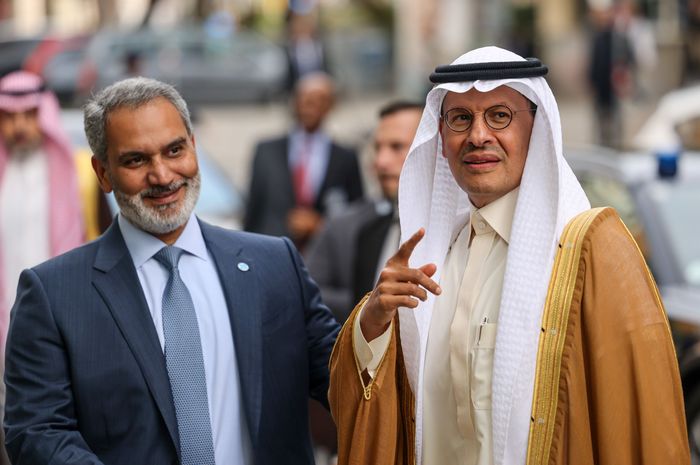| 일 | 월 | 화 | 수 | 목 | 금 | 토 |
|---|---|---|---|---|---|---|
| 1 | 2 | 3 | 4 | 5 | ||
| 6 | 7 | 8 | 9 | 10 | 11 | 12 |
| 13 | 14 | 15 | 16 | 17 | 18 | 19 |
| 20 | 21 | 22 | 23 | 24 | 25 | 26 |
| 27 | 28 | 29 | 30 | 31 |
- 인생그리고여행
- 엘리자베스2세 #영연방 #commonwealth #elizabeth
- 심장박동기 #페이스메이커 #테니스
- 남미여행블로그
- 아브라함과롯
- 비트겐슈타인 #키에르케고르
- 보우소나로 #룰라 #브라질대선
- 포르탈레자 #긴머리총각 #댄서
- 키아누리브스 #산드라블록 #시뮬라시옹 #장자 #호접지몽
- 베네수엘라 #난민 #주기도문
- 뉴칼레도니아 #니켈 #전기자동차베터리 #베이징회담 #중국과러시아
- 판타나우 #pantanal
- 한국인 #민족주의 #신채호
- 통일교 #아베 #재일교포
- 자밀카쇼지 #바이든 #GCC #인플레이션
- 길복순 #약육강식 #아킬레스건
- 에드워드리 #흑백요리사
- 유일한 축복
- 오징어게임 #황동혁 #이정재
- Alexandria Ocasio-Cortez #낙태
- 지미카터 #조바이든 #자말카쇼지 #MBS
- 아르헨티나상식 #ChatGPT
- 독일사진사 #포르탈레자
- 피규링야 #worldcupsticker #브라질 #아르헨티나 #카타르월드컵
- 고양이 #뒷마당 #고양이새끼
- Carnaval #카니발
- 일주일 #일주일휴가
- 무어인 #알함브라 #세빌라 #그라나다
- 아시아인차별 #미국대학입학 #유대인
- Roe v Wade
- Today
- Total
남미의 어느 해변의 브랑코씨
OPEC의 골치거리 가이아나 본문
인구가 80만밖에 되지 않는 가이아나에 거대한 유전이 발견되었다. 거대한 매장량에 비해 적인 인구로 인해 인구당 세계최고량의 석유가 묻힌 나라로 등극했다. 가이아나는 잘 알려지지 않은 나라이지만, 세계최대석유매장량으로 유명한 베네수엘라와 국경을 마주하고 있는 나라라는 것을 감안한다면, 가이아나가 거대 유전위에 앉아있다는 것이 어쩌면 당연할 법한 일로 느껴진다.
1823년 미대륙의 주권을 주창한 먼로의 선언이래로 중남미가 지금은 오롯히 미국의 텃밭이 되어버린 만큼 가이아나의 에너지 주권은 미국의 이해관계에 따라 좌지우지 될것이라는 것은 짐작하고도 남음이 있다. 특히 우고차베스 시절 이래로 미국에 반기를 든 베네수엘라의 처참한 상황을 지켜봐온 가이아나의 정치인들과 국민여론은 절대 반미 노선에 발을 담그기가 어려울 것이라 생각한다.
한편, 사우디를 위시한 중동의 산유국의 힘이 강한 OPEC의 입장에서는 가이아나와 같은 새로운 산유국들이 자기편이 되어 석유 증산과 감산에 동참해서 에너지 패권을 유지하는데에 힘이 되어 주어야한다. 특히 미국의 셰일혁명의 등장, 친환경재생에너지 정책 그리고 중국과의 패권전쟁으로 인한 중동의 전략적 가치의 감소는 미국과의 관계를 틀어지게 만들어왔다. OPEC은 아직 그 일일생산량이 크지는 않지만, 몇 년안에 세계 20대 원유생산 국가로 성장할 가능성이 높으며, 베네수엘라의 옆에 위치한 나라인지라 새로운 거대 유전이 더 발견된다면 OPEC에 위협이 되는 산유국이될 가능성도 있다.
그래서 OPEC은 같은 배를 타자는 손을 가이아나에 내밀었고, 가이아나는 일단은 그 손을 잡지 않고 미국과 OPEC의 사이에서 어느 곳을 향해야 할 지 고민 중인 것이다. 아마도 그 방향은 워싱턴에서 결정될 가능성이 클 것으로 보인다.
출처
WSJ News Exclusive | OPEC Woos Guyana, Tiny Nation That Sits Atop Massive Oil Field
South American country Guyana doesn’t want to join the cartel and aims to pump oil rapidly.
www.wsj.com
원문
OPEC Woos Guyana, Tiny Nation That Sits Atop Massive Oil Field
Small South American country doesn’t want to join the cartel, aims to pump oil rapidly

GEORGETOWN, Guyana—Thanks to a transformational oil find, this tiny nation has built ties in recent years with the world’s most influential energy companies, financiers and governments. Now, it has a powerful new suitor: OPEC.
The oil cartel is courting Guyana to become its newest member, in a bid to extend the bloc’s influence into a small South American country that has suddenly become the world’s fastest-growing oil producer, according to people familiar with the matter.
Both Saudi energy minister Abdulaziz bin Salman and Haitham al-Ghais, OPEC’s secretary-general, invited Guyana to join the cartel in recent months, according to two OPEC delegates briefed on the approach.
So far Guyana has chosen not to join, and Vice President Bharrat Jagdeo told The Wall Street Journal that the country needs to maximize production—and profits—in the short term, given that oil demand is expected to decline in coming decades.
“Right now, the idea is to get as much of these resources out of the ground as quickly as possible given that we are not sure of the window we have in the future,” Jagdeo said.

Joining the Organization of the Petroleum Exporting Countries, according to Jagdeo, would risk Guyana becoming beholden to efforts by Saudi Arabia and other members who have worked together on-and-off in recent years to curb global supplies and prop up prices.
“We just want to hug a corner for the time being and get our national act right,” he said.
For OPEC, enlisting Guyana would be its biggest catch in years. Guyana is aiming to boost its oil production by one million barrels a day by 2028, the same amount by which OPEC’s de facto leader Saudi Arabia has planned to increase its capacity in that period.
If Guyana joins, it would become OPEC’s first new member in five years. With less than one million residents, it would be the smallest country in the bloc by population and is expected to become one of the world’s largest oil producers per capita.
The entreaties were part of a broader push by the organization to bring in new members as it faces competition from producers that are outside its main sphere of influence, the delegates said.

In recent years, the Saudi-dominated OPEC has expanded its membership with African countries and struck an alliance with Russia and other producers in the former Soviet Union and Asia called OPEC+.
OPEC has now proposed to Azerbaijan and Malaysia, which are allies in OPEC+, to join the group as full members of the cartel, but their production is small and has been stagnating, the delegates said.
Guyana’s lofty aspirations for its oil discoveries have made it a bigger target than most. Exxon Mobil and its partners have sanctioned more than $40 billion in oil projects there, with five projects expected to pump more than one million barrels a day combined by the end of the decade.
Advertisement - Scroll to Continue
That is roughly equivalent to U.S. plays like the Eagle Ford in South Texas or the Bakken in North Dakota currently produce. Since 2015, Exxon and its partners have made more than 30 big finds there, with output coming in at more than 360,000 barrels a day by the end of last year.
The companies estimate the Stabroek Block off Guyana has 11 billion oil-equivalent barrels. It has become the world’s most promising oil play, investors say.

As its oil production has grown, so has Guyana’s presence on the global stage. The country was elected a nonpermanent member of the United Nations Security Council earlier this month. Its economy has expanded rapidly and foreign investments have begun to flow to infrastructure projects, in support of the country’s power grid and port operations.
The oil-sector growth has triggered a freer flow of higher-priced goods and drawn investors to plunk money in hotels and restaurants in the mostly jungle-covered country. The International Monetary Fund projects gross domestic product will rise by 37% this year.
Jagdeo said the cartel has invited Guyana’s officials to meetings in Europe, but his government doesn’t believe it is advanced enough to join the group, and its production isn’t yet large enough to sway global markets. It is also still working to finalize a new legal framework for oil-and-gas that would apply to future operators.
“It sounds a bit crude to say our depletion policy is to get as much oil out of the ground as quickly as possible,” he said. “We don’t want to be part of OPEC at this point in time.”
While Guyana supports efforts to decarbonize the planet and cut fossil-fuel subsidies, he added, its government also needs to invest in its economy—in highways, power plants, food production and new hospitals.

Guyana’s decision not to join OPEC comes as the bloc is seeing its influence over global supplies and prices ebb. Oil-producing countries outside OPEC+ are set to expand faster in the coming five years than the alliance, according to a report by the International Energy Agency released in mid-June.
SHARE YOUR THOUGHTS
Should Guyana become a member of OPEC? Why or why not? Join the conversation below.
Non-OPEC producers are projected to boost output by 5.1 million barrels a day, led by the U.S., Brazil and Guyana, it said. By contrast, the 23 members of OPEC+ will add new capacity of 800,000 barrels a day as investments in Saudi Arabia, the United Arab Emirates and Iraq are expected to be largely offset by declines in Russia and among allied African and Asian producers.
A previous attempt by Saudi Arabia and OPEC to bring Brazil into the cartel in 2020 failed because the South American producer was concerned it would have to join production cuts, OPEC delegates have previously said.
'남미 이야기' 카테고리의 다른 글
| 페루에 대한 흥미로운 상싱 - Chat GPT (0) | 2023.06.20 |
|---|---|
| 가이아나에 대한 흥미로운 상식 - ChatGPT (0) | 2023.06.20 |
| 콜롬비아에 대한 흥미로운 상식 - ChatGPT (0) | 2023.06.14 |
| 브라질에 대한 흥미로운 상식 - ChatGPT (0) | 2023.06.14 |
| 베네수엘라에 대한 흥미로운 상식 - ChatGPT (0) | 2023.06.14 |
